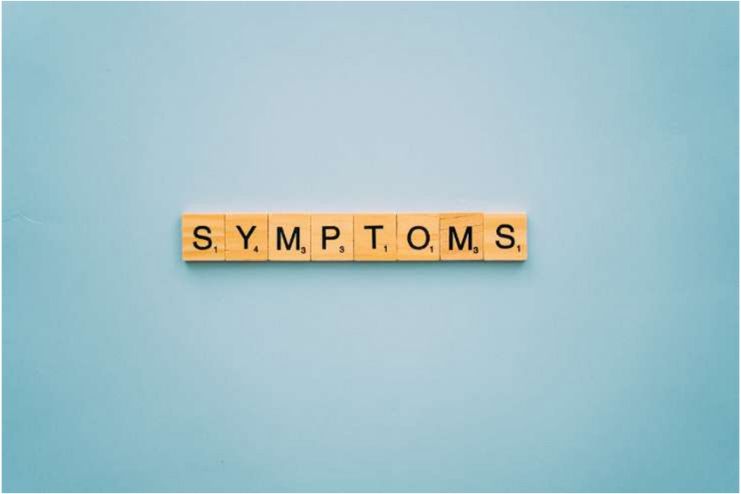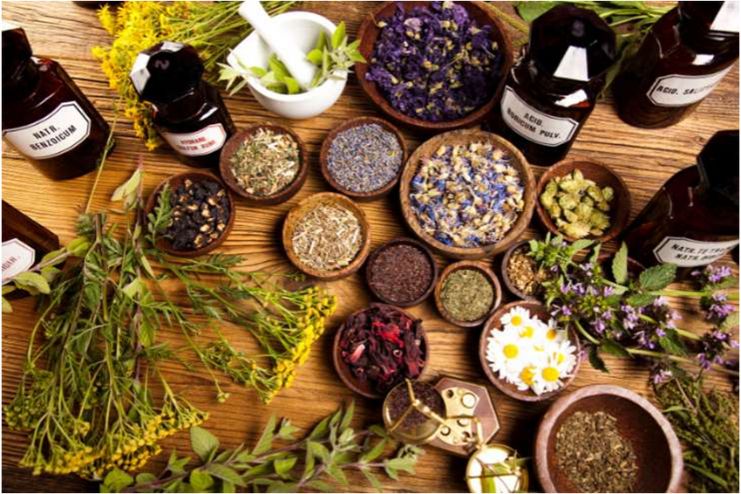Affiliate Disclaimer
Some links in this article are affiliate links. We may earn a small commission if you make a purchase through these links, at no extra cost to you. We only recommend products we find useful to our readersOne of the most well-known endocrine gland disorders affecting women is polycystic ovarian syndrome (PCOS), which affects 70–95% of obese PCOS patients and 30–75% of lean PCOS patients. In individuals with PCOS, problems include hirsutism, acne, irregular menstrual cycles, obesity, and impotence.
Low-grade, chronic inflammation is a significant contributing factor to PCOS. Increased glucose may cause oxidative stress and trigger an abnormal response from the mononuclear cells (MNCs) of female PCOS patients, which typically rely on glucose rather than fat for energy.
In addition to making PCOS symptoms worse, this hormonal imbalance raises the possibility of significant health issues like type 2 diabetes and cardiovascular illnesses. Women who understand the role that insulin resistance plays in managing PCOS can take proactive measures to improve their health and take back control of their lives.
Read More: 16 Home Remedies For PCOS – Know What You Can Do!
What is Insulin Resistance? Simplified

When your body’s cells cease reacting to insulin, the hormone that aids blood sugar regulation, insulin resistance develops. Insulin is a key that opens your cells, allowing glucose (sugar) from the bloodstream to flow in and be used as fuel.
The “lock” on the cell door malfunctions when there is insulin resistance. The door doesn’t open as quickly even with the correct “key” (insulin), which leads to an accumulation of sugar in your blood.
The body responds by increasing insulin production, yet the cells still refuse to budge. It may eventually result in weariness, weight gain, and elevated blood sugar levels.
Because insulin resistance can cause the ovaries to create extra androgens (male hormones), which can result in symptoms including irregular periods, acne, and excessive hair growth, it is particularly problematic in the context of PCOS. Effective PCOS management requires an understanding of insulin resistance.
Insulin Resistance and PCOS: A Biochemical Breakdown
The intricate relationship between PCOS and insulin resistance might result in a negative feedback loop since each condition feeds the other. It is unknown which causes which, specifically if PCOS or insulin resistance occurs first. According to Christina E. Boots, M.D., a reproductive endocrinologist at the Northwestern Medicine Center for Fertility and Reproductive Medicine Chicago in Illinois, what is known, though, is that the two disorders frequently coexist.
High androgen levels can interfere with ovulation, causing an irregular menstrual cycle. Think of your ovaries as a factory that requires a set of instructions (hormones) to create eggs. Insulin resistance mishandles these instructions, making it difficult for the factory to run efficiently and produce few or no eggs, which leads to irregular cycles or skipped periods.
Furthermore, high insulin encourages the body to accumulate fat, especially in the abdominal region. This vicious cycle of weight gain aggravates insulin resistance, making weight reduction more difficult. Lastly, insulin resistance-related hormonal imbalances can impair fertility, making it more difficult for PCOS-affected women to become pregnant. Comprehending this molecular connection is essential for symptom management and bettering general health.
Read More: How To Lose Weight With PCOS? 15 Science Backed Ways For Better Recovery
The Silent Symptoms: Recognizing Insulin Resistance in PCOS Women

Insulin resistance frequently appears subtly, showing up as minor symptoms that many PCOS-affected women may miss.
One of the most typical warning signs is the formation of skin tags. These tiny, harmless growths frequently appear on the neck, underarms, or eyelids and may be a clear indicator of an insulin resistance-related hormonal imbalance.
Acanthosis nigricans, a medical condition that causes dark patches on the skin, is another sign to be aware of. These patches, typically located in skin folds like the armpits or neck, can indicate a problem with insulin regulation in the body. Rather than disregarding these as simple variations in your skin, your body might be trying to tell you about something more profound.
People sometimes disregard unexplained fatigue as another symptom. Even after a restful night’s sleep, if you’re feeling more exhausted than usual, it may be due to your body’s ineffective use of insulin, which causes fluctuations in your energy levels.
For women with PCOS, it’s critical to recognize these subtle symptoms. Early treatment of insulin resistance can lead to better symptom management, enhanced general health, and a more balanced, active life.
Read More: What Is Insulin Resistance? A Comprehensive Overview
Why Insulin Resistance Matters for Fertility

Many women are unable to develop eggs or ovulate regularly—both essential for conception—due to growing rates of insulin resistance and metabolic dysfunction. Ovulatory dysfunction, which can result in additional hormone imbalances and reproductive issues, is mainly caused by insulin resistance. A University of North Carolina study found that 88% of Americans are metabolically unfit, which indicates insulin resistance. The metabolic scientist and professor at BYU, Dr. Ben Bikman, cautions about the risks associated with this alarming figure.
Hormones instruct the ovaries to release an egg in a healthy menstrual cycle each month. But when insulin resistance is present, too much testosterone can disrupt this cycle and cause the ovaries to miss ovulation completely. In this circumstance, no egg is released for fertilization, which is referred to as anovulation.
In the absence of regular ovulation, getting pregnant becomes difficult. Women may feel angry and perplexed as they try to figure out why they’re having trouble getting pregnant. For those with PCOS, understanding the connection between insulin resistance and fertility is essential. Through lifestyle modifications or medication procedures aimed at managing insulin resistance, women can increase their odds of ovulation and, eventually, their fertility.
Read More: 15 Ways to Lower Insulin Levels Naturally
Breaking the Cycle: Treating Insulin Resistance in PCOS
To manage insulin resistance in PCOS patients, a two-pronged strategy is used: medication and lifestyle modifications. The American Diabetes Association states that drugs like metformin, an oral drug that lowers blood sugar, can help lessen insulin resistance. Dr. Boots states that metformin is prescribed for women with PCOS since many of them have some degree of insulin resistance, even in the absence of diabetes.
However, medicine alone is insufficient to reverse the cycle of insulin resistance; lifestyle modifications are just as crucial. Blood sugar level can be regulated by a well-balanced diet high in whole foods, especially fiber, lean protein, and healthy fats. Increase your intake of non-starchy vegetables and fruits with lower Glycemic index, such as berries, citrus fruits, broccoli, cabbage, cucumbers, and tomatoes.
According to American Diabetes Association (ADA), exercise increases insulin sensitivity. It causes your cells to absorb glucose regardless of insulin, which helps maintain lower blood sugar levels.
According to the Cleveland Clinic, eating many processed, high-sugar foods might raise blood sugar levels. It instructs your pancreas to create more insulin, which, over time, may increase insulin resistance.
Women with PCOS can take charge of their insulin resistance and enhance their overall health as well as their chances of better managing PCOS symptoms by combining medicinal treatments with long-term lifestyle modifications.
Natural Remedies for Insulin Resistance in PCOS

Several herbal and natural supplements can increase insulin sensitivity in PCOS-affected women, providing a milder method of treating insulin resistance. Cinnamon, a spice that improves food flavor and lowers blood sugar, is one of the most widely used treatments. Research has demonstrated that cinnamon increases insulin sensitivity, allowing body to use insulin more effectively.
The plant fenugreek, frequently used in traditional medicine, is another effective natural treatment. Compounds found in fenugreek seeds support insulin activity and aid in blood sugar regulation. Vitamin supplements or dietary additions of fenugreek can help lower PCOS symptoms and increase insulin sensitivity.
Chinese medicine uses berberine as an herb to treat insulin resistance. If you have PCOS, berberine may speed up your metabolism and normalize your body’s endocrine reactions. It functions by turning on an enzyme that aids in controlling how the body breaks down fats and carbohydrates.
Although these natural remedies have supportive properties, they should be used in conjunction with regular medical care and a healthy lifestyle.
Read More: Understanding Hormonal Imbalance and Its Impact on Fertility
Can You Reverse Insulin Resistance in PCOS? A Future Outlook
With continued study and development of medicines, there is growing interest in treating women with PCOS for their insulin resistance. Research indicates that combining pharmaceutical treatments, dietary modifications, and other therapies can markedly improve insulin resistance, even though it cannot be cured overnight.
According to a recent study, losing even 5 to 10% of the body weight can significantly improve the insulin sensitivity. Combined with healthy diet and regular exercise, this approach has helped many women.
While a total turnaround isn’t certain just yet, things appear to be improving. Future generations of PCOS women may be able to manage—and even lessen—insulin resistance because of ongoing research and scientific developments in medicine.
Conclusion
Insulin resistance affects everything from hormone balance to fertility, which is one of the main issues experienced by women with PCOS. Nonetheless, women can actively regulate this relationship by being aware of it.
A mix of medical interventions, dietary modifications, and homeopathic remedies can considerably reduce insulin resistance, helping to lessen PCOS symptoms and improve overall health.
Understanding insulin resistance and making wise decisions for long-term well-being are the first steps in managing PCOS, even as research advances and offers new hope for even more successful treatments.
References
- https://academic.oup.com/edrv/article/18/6/774/2530788
- https://helloclue.com/articles/cycle-a-z/the-link-between-pcos-and-insulin-resistance
- https://www.sciencedirect.com/science/article/pii/S0015028206009137
- https://academic.oup.com/edrv/article/33/6/981/2354926
- https://www.healthcentral.com/condition/polycystic-ovary-syndrome-pcos/insulin-resistance-pcos
- https://www.nm.org/doctors/1760712863/christina-e-boots-md
- https://www.mdpi.com/1422-0067/24/4/3140
- https://www.endocrine.org/~/media/endosociety/files/ep/rphr/56/rphr_vol_56_ch_14_insulin_resistance_in_polycystic_ovary.pdf
- https://www.hopkinsmedicine.org/health/conditions-and-diseases/polycystic-ovary-syndrome-pcos
- https://immattersacp.org/archives/2009/02/pcos.htm
- https://www.verywellhealth.com/how-do-i-know-if-i-have-insulin-resistance-2616646
- https://www.veri.co/learn/insulin-resistance-and-infertility
- https://www.healthcentral.com/womens-health/infertility-insulin-resistance-5-tips-your-odds-getting-pregnant
- https://ph.byu.edu/bikman-on-insulin
- https://pubmed.ncbi.nlm.nih.gov/30484738/
- https://www.michiganmedicine.org/health-lab/7-things-know-about-polycystic-ovary-syndrome
- https://www.webmd.com/women/what-is-pcos
- https://www.medicalnewstoday.com/articles/323002
- https://diabetes.org/health-wellness/insulin-resistance
- https://www.healthcentral.com/condition/type-2-diabetes/metformin-side-effects
- https://diabetes.org/health-wellness/fitness/blood-glucose-and-exercise
- https://my.clevelandclinic.org/health/diseases/22206-insulin-resistance
- https://medlineplus.gov/ency/patientinstructions/000941.htm
- https://www.goodrx.com/conditions/pcos/natural-treatment
- https://www.healthline.com/health/womens-health/natural-treatment-pcos#supplements
- https://www.medicalnewstoday.com/articles/326560
- https://www.jeanhailes.org.au/health-a-z/pcos/pcos-natural-therapies
- https://www.fda.gov/vaccines-blood-biologics/cellular-gene-therapy-products/what-gene-therapy
- https://www.mayoclinic.org/tests-procedures/gene-therapy/about/pac-20384619
- https://my.clevelandclinic.org/health/treatments/17984-gene-therapy
In this Article


















